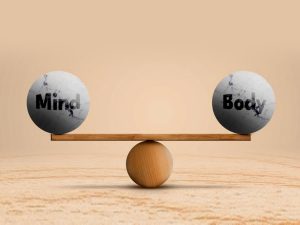
Psychology in everyday life… a reflection from editors’ desk
William James, one of the most influential philosophers and psychologist defined psychology as the science of mental life, both of its phenomena and their conditions. In simple words, psychology studies people’s behavior, cognitive attitudes, performances, and mental functioning. All these factors come into play daily in our lives and we may or may not be aware of them. Thus, contrary to popular belief, psychology is not utilized merely by students of the discipline or those practicing in the field, this science of behavior is an important part in our daily lives regardless of our professions, our fortes and our callings in life.
A closer look at some of domains where psychology and its principles impact our day-to-day living. Psychology offers tremendously as one learns from their environment and starts getting accustomed to it. It plays a major role when one needs to trace holistically the rationale of why people behave in a certain way – and with these pieces of information one can reflect on their past, mindfully work on their present and aspire to improve their future. And this is all the more needed when the threshold of our concept of self is extending to a social, virtual one. Rather than analyzing these different domains from a lens of segregation, if it is perceived from a lens of similarity – a central theme of commonality between them would meet the eye – Psychology plays an integral role in shaping one’s decision-making skills and can help one in regulating stressful situations and coping through life challenges. Acquiring such intra-personal skills can help one in managing one’s time, surroundings, as well as form a magnanimous help in achieving goals – as a result, in living effectively. This field enables one to gain an insight of their thought process, which holds in it the ability for them to develop a rational and critical thinking. These acquired skills make one ‘wise enough’ to tackle their situations proactively, and make the best use of their situational demands.
In this scenario of a dichotomous world – both virtual and real, being extensions of our own selves – there is an increased intricate symbiotic relationship between one’s quality of life and their life-chances and the catalyst for this is everyday decision-making. The skill of effective decision-making is a challenge and can be empirically said to be is rooted in psychology and its techniques.
Each interaction and conclusion reached is comprised of certain mental sets, heuristics, or at least communication styles – because humans are social animals and communicate with each other and routinely contribute to each other’s transfer of knowledge. It is hence easy to reflect how a distortion in any of these elements or processes, can be a huge barrier in everyday life. Living amidst a plateau of unique technological advancements yet in an era of misinformation is a huge challenge for the citizenry of this world. While science has contributed in unmatchable ways, the internet has left a lot of unregulated domains where very frequently – through sensationalism, dualistic thinking, and herd-mentality – a shift in terms of hampering our judgment and decision making and impeding our critical thinking skills – is taking place. This challenge peaked more amidst the pandemic where the human touch was lost and we all were only left with limited amounts of communication styles, most of which were falling apart or undergoing serious challenges. In such a situation, it is of paramount importance to sit and reflect as psychology students about the conscious, rational decisions we are taking on a regular basis, and to monitor and regulate them through awareness and open dialogue – Distorted dialogue in the virtual and real world among individuals oftentimes forms the silent foundation as well as the dynamic basis of increased inter-group conflicts in everyday life – because of latent elements of stereotyping and discrimination in everyday thought, speech, and action one may not even be aware of. Psychology analyses such sub-elements which shape our realities and their constructs.
Psychology plays a huge role in the unique element that separates us from all other species that we share the world with – socialization. What humans have off late been doing with their unique function, is fight – for resources, for power, or for having the last word. What forms the background for such oppressive acts on each other and the world – are often, stereotypes. As has been famously quoted, stereotypes are not wrong information but incomplete information. Psychology comes in play at this stage where it helps to see the larger picture and not just the actions or behaviour in alienation. The very soul of psychology lies in observation and analysis. In a similar manner, the implementation and study of psychology is not limited to mental well-being,it is used vastly in in real-time settings of workplaces, schools and institutions; for life-skills management, understanding social and group behaviour, and even employment selection. Psychology is important in understanding these various domains of human society – because it is have been realized that human behaviour is the central aspect of all human activities, and to regulate activities would also require regulation and management of human behaviour. But to reach there, the first step is awareness of human behaviour per se.
In an age of rapid flow of information, varied truths and multiple versions of ‘the best’ ways possible exist at the same time, being the core of differences, fights and altercations – It is human nature to question and to be sceptical of things around us in this coexisting multiplicity of thoughts. This is because what works for one, may not be the similarly defined option for someone else. Different schools of thoughts in psychology address the same, and come to help inclusively – individuals with varied circumstances, each school celebrating the power of subjectivity. Each school with its own theory, beliefs and tools, helps one to reach first the definition of the cause, and eventually the transformation in healing that we all want to be a part of, not just individually – but as a species that has seen unprecedented times. Psychology also helps in understanding the mind-body relationship. This relationship takes into consideration the fact that one’s attitudes, thoughts and feelings can have a significant impact on their physical wellbeing and health. One’s physical disposition can have a widespread influence on their mental health, simply because they form the core of the concept of well-being – together. The dissemination of these constructs and how they function, holds the potential to effectively tap in on the existing poor mental health conditions among the population of not just the country, but the world.
Each one of us has our inherent biases and beliefs which we have picked over the years by observing and learning from the world around us. We generalise things to help us grasp situations and to make sense of the world around us. These “mental schemas” or generalisations are what help us to survive in daily life. However, they also become the base note for stereotypes and biases.
Psychology plays a particularly significant role in helping us understand why things exist the way they do and how best we can address them. In the same spirit, we bring forth our first student-led blog with the theme ‘Psychology in Daily Life’ to help reduce the myths and stereotypes around psychology. The sole purpose of the blog is to provide a platform for students to express their creative forms with references to psychological theories and principles. The motive behind the blog is to spread psychological awareness, challenge social myths and encourage people to look at psychology from a more scientific and medical perspective. Consider these scenarios – How often in everyday life do we see an animal and refer to it as a male? How often in everyday life do we assume that the pilot of our flight or the driver of our train will be a man too? As budding psychologists, it is our prime duty to be mindful and aware of our own selves, and understand ourselves before we begin to understand others. We need to challenge our stereotypes and biases and learn to be better at looking at the bigger picture than what just meets the eye. We need to educate ourselves to identify, trace and capitalise rationality, logic and science in our everyday lives, and to approach with curiosity the idea of how the nuances compiled in this article are just a small drop in the vast pond of psychology as a science. With the hope that we all make collective informed decisions, we the editors of the JSPC student blog welcome you to the first edition of our blog – which is just a step in the direction of empirical awareness and mindful assistance that we all today need.
